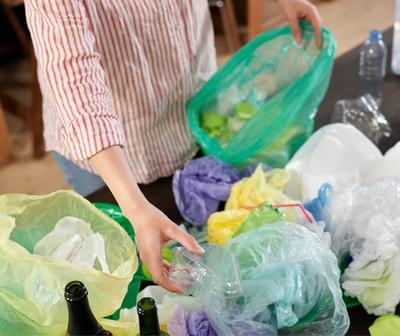The Ultimate List of Eco-Friendly & Environmental Holidays [A Guide to Green Holidays]
Posted By on Sep 23rd 2024
by Saloni Doshi & Meghan O'Neal • published September 23, 2024 • 11 min read
Most of us already know about Earth Day. But did you know there are many other environmental holidays to celebrate, too? Whether you’re a business, a non-profit, or a concerned individual, these holidays present the perfect opportunity to spread awareness and educate yourself and others on important issues.
In 1970, Senator Gaylord Nelson created Earth Day to impose environmental regulations issues on the national agenda, which led to the foundation of the Environmental Protection Agency (EPA). Since then, organizations like the United Nations Environment Programme and International Dark-Sky Association and activists like Anwar Fazal have created several “green” holidays to share the importance of sustainability, environmental commitment, and appreciation for this beautiful planet of ours.
Beyond environmental holidays, we must also be mindful of our increased environmental footprint during standard holidays, especially the big ones. Waste and carbon emissions increase during the holiday season, especially due to gift-giving. Still, if each household would make just a few small changes, it could substantially impact our planet.
If you’d like to extend your earth-conscious celebrations and be part of the change, here are 100 eco-friendly holidays from around the world and some tips for celebrating your favorite holidays in an eco-friendly way.
About EcoEnclose
EcoEnclose is a leading provider of eco-friendly packaging. In addition to developing and innovating packaging to meet our ultimate vision of circularity, we also share in-depth research with sustainable brands and their conscious consumers. Click here for our full suite of resources, or check out our blog.
100 Celebratory Environmental Holidays
Environmental holidays are a great way to remind ourselves to be good stewards of our planet and to spread awareness about environmental issues. You don’t have to celebrate every Earth-related holiday. Pick a handful that resonates with you, and on those days, be sure to post a little something on your social media channels for awareness, donate to a cause you love, and take a little extra time to be mindful of your impact.
Bonus: Meatless Mondays
Every Monday throughout the year, do your part for the environment by forgoing meat. Switching to a vegetarian diet once a week can do wonders for your health and the environment.
How to celebrate environmental holidays
The United Nations and other non-profit organizations established earth-focused “holidays” to raise awareness of issues. Therefore, educating yourself and the people around you is the best way to celebrate these days.
If you are reading this from the lens of an eco-focused business, these holidays represent excellent opportunities to talk about issues you are passionate about and that your business is helping to address and, in turn, support your business’s marketing efforts.
If you are reading this from the perspective of a non-profit, these holidays are perfect days to educate the public about issues, some of which are relatively obscure. For instance, most people don’t understand the importance of soil, but showcasing the difference between dead versus healthy soil on December 5th (World Soil Day) can help. Couple this with tips people can take to improve soil health, and you’ve leveraged this holiday for precisely what it intended to achieve.
If you are an interested citizen, these holidays present the perfect opportunity to talk to friends about issues or engage in relevant activities. For example, sign up for your curbside compost program on World Soil Day or start your home compost bin.
Let’s take a look at some ways to spread awareness:
- Post some facts or an infographic on social media.
- Donate to your favorite cause related to the holiday, and encourage others to do the same.
- Create an event to take action on a particular holiday. For example, you can organize a beach cleanup for National Beach Cleaning Week during the first week of July.
- Include your friends in monthly challenges. For example, you can join a group to participate in Meatless Mondays and keep each other accountable.

Eco-friendly tips for celebrating all holidays
Now that you have a calendar full of environmental holidays, bringing the same eco-friendly spirit to all holidays is time. We all recognize that stretch from Thanksgiving to Christmas as “THE” holiday season. Unfortunately, that particular mega holiday season is not typically the most eco-friendly.
Every step we take to decrease the environmental footprint of the season is a win for the planet. With the big season just around the corner, our experts have gathered the best tips to celebrate a sustainable, eco-friendly holiday season, whether you’re celebrating Christmas, Hanukkah, Kwanzaa, or even Festivus.
(Looking to make changes throughout the year? Click here for tips on running sustainable events all year long.)
Source eco-friendly products
Opt for eco-friendly products when finding the perfect presents for your loved ones. Consider each item's materials, usability, and longevity so your present doesn’t become part of the problem one day. For example, if you’re looking for activewear for a runner in your family, find recycled polyester running shorts or shoes made of recycled rubber. This way, they can enjoy workout clothing that wicks sweat in a circular manner.
Purchase your gifts online
Is there anything worse than driving all over town to fulfill your shopping list? It turns out it’s not just bad for your stress; the travel time is also bad for your carbon footprint. Online shopping allows you to shop from the comfort of your home, leaving you and the planet happy. Unfortunately, everything in life has an environmental footprint, including online shopping. You can minimize your impact by looking for companies that offer sustainable packaging.

Avoid expedited and overnight shipping
We’ve all experienced the stress and struggles of last-minute shopping the week before Christmas, so we understand what a lifesaver overnight shipping can be. But it comes with a cost. Expedited shipments can carry as much as 35 times more emissions than standard shipments. Ouch. Do your best to avoid this by completing your holiday shopping well ahead of time and opting for the slower but much more eco-friendlier standard shipping option.
Consolidate your online purchases
While shopping online can result in a lower carbon footprint—since it uses one van to deliver multiple products to people rather than multiple people taking their cars to purchase their products—you can quickly rack up your carbon emissions if you’re not mindful of your online shopping. Try to consolidate your orders rather than purchasing individual items from different shops. Buying ten items that arrive over ten different deliveries won’t reduce your carbon footprint as much as you’d like it to.
Window shop online and buy local
Planning ahead by mapping out your shopping plan can reduce carbon emissions and create a much easier shopping experience overall. Some stores even have pickup options, so you can purchase the item online and go to the store to see it in person before taking it home. These services help limit the driving that needs to be done—rather than going all around town; you can go directly to the store and know that the items are there—while maintaining the experience of shopping at a physical store.
Give ethically with handmade, recycled, or repurposed gifts
Handmade gifts (made of recycled or recyclable materials) are eco-friendly and personal. Choose natural materials like wood, paper, or recycled fabric to ensure your gifts are biodegradable. Recycled and repurposed gifts can be another way to minimize waste associated with gift-giving. When opting for this choice, make sure you put a lot of time and energy into making these gifts memorable.

Use recycled paper for wrapping gifts
As a sustainable packaging company, we know the importance of using eco-friendly and recycled materials. Using recycled wrapping paper is a cost-effective way to reduce paper waste. Add special touches like leaves, twine, or a painted-on design to maintain the holiday spirit while making the right choice for our planet. You can also reuse things like corrugated bubble or eco-friendly package fillers to protect fragile items in an eco-friendly way.
Here's a guide to making a special package to inspire you.
Send digital gift cards or opt for gift experiences
Sometimes, we’re not quite sure what to get a person. Some people are simply difficult to shop for, no matter how long you’ve known them. Sending digital gift cards is a great way to reduce carbon emissions, and your loved ones can buy something they genuinely want online. Take the extra step by sending a gift card that supports an environment-friendly company. Similarly, a gift experience, like baseball tickets, a short trip, or cooking lessons, can be bought online and minimize your environmental footprint by limiting your shopping travel time and gift wrap.
Here's a list of 11 experiential gift ideas in case you’re stuck.
Purchase returnable gifts and provide gift receipts
The sad truth is that many unwanted gifts end up in a landfill. In the UK, about £42 million of presents end up in landfills every year. Minimize wasteful consumption by making it easy for your loved ones to return your gifts if they don’t want them. Provide gift receipts, check the return policy for your gifts, and purchase presents that you’re confident they’ll like. As for yourself, make sure the unwanted gifts you receive are returned, donated, or otherwise find a loving home.
Choose green holiday décor
Christmas trees, decorative lights, plastic ornaments, and more contribute greatly to the heightened environmental impact of the holiday season. Being more strategic about decorating your house allows you to enjoy holiday decor while remaining a good steward of the planet. Here are six ways you can be more green with your decorations:
1. Switch to LED or solar lights. LED lights are 90% more efficient than traditional holiday lights and solar-powered ones don’t require energy. So using these kinds of lights is a more cost-effective and greener choice.
2. Use timers for your holiday decorations. They will give you peace of mind and lower your holiday lights' power consumption during the day.
3. Opt for beeswax or organic candles. Organic candles are ethically sourced and are free from potentially harmful additives.
4. Use natural decorations. Decorate with real plants, and avoid plastics you will throw away at the end of the year.
5. Make your centerpieces from recycled materials.Recycled paper, glass jars, fabrics, and ribbons are excellent décor materials. You can upcycle used lightbulbs by filling them with water, hanging them upside down on a wall, and filling them with plants.
6. Buy a potted Christmas tree. Potted Christmas trees need less space and are more durable than fully-grown Christmas trees. After the holiday, you can even plant it in your backyard.

Decrease waste around the dinner table
Once you’ve bought your presents and decorated your home in an eco-friendly way, you need to make sure that your dinner table maintains the same environmental ethics. Agriculture has a huge ecological footprint, and according to the NRDC, around 40% of food is wasted. If every household did its part to reduce food waste, especially around the holidays, it could make a major impact.
Here are some ways to decrease waste at the holiday dinner table:
1. Purchase only what you will eat. Yes, the holiday season is about gorging on your favorite snacks, but we can’t go overboard. Carefully review your guest list and align your shopping list with what you think you’ll need.
2. Avoid disposable dishes. Using ceramic dishes for your holiday meal will drastically reduce trash production.
4. Use up or donate your leftovers. It’s okay if you have some food left over; it’s hard to determine precisely what everyone will eat. But, when you’re done, save as much as possible to be eaten later.
Making eco-friendly decisions doesn’t require massive changes. By opting for the greener option here and there, you can make a huge difference. It is possible to enjoy all the fun traditions we love while practicing green living. You simply need to make mindful decisions as you plan your holiday fun.
Additional Resources
How to Recycle: Tips to Get Started
Recycling is absolutely critical, as is knowing how to recycle correctly. Learn the correct steps to take to ensure you are recycling efficiently.
Guide to Recycling During the Holidays
Find answers some of the most common holiday recycling FAQs and tips on how to responsibly buy and recycle many of the holiday basics.
EcoEnclose Resource Center
Explore our sustainable packaging guides to help you choose the right packaging solution for your shipments.
About EcoEnclose
EcoEnclose is the leading sustainable packaging company that provides eco-packaging solutions to the world’s most forward-thinking brands.
We develop diverse, sustainable packaging solutions that meet our rigorous research-based standards and customers’ goals. We drive innovative packaging materials to market and consistently improve the circularity of existing solutions.


![The Ultimate List of Eco-Friendly & Environmental Holidays [A Guide to Green Holidays] The Ultimate List of Eco-Friendly & Environmental Holidays [A Guide to Green Holidays]](https://cdn11.bigcommerce.com/s-rd0ndag3a6/images/stencil/500x400/uploaded_images/earth-day-celebration.jpg?t=1607115828)


